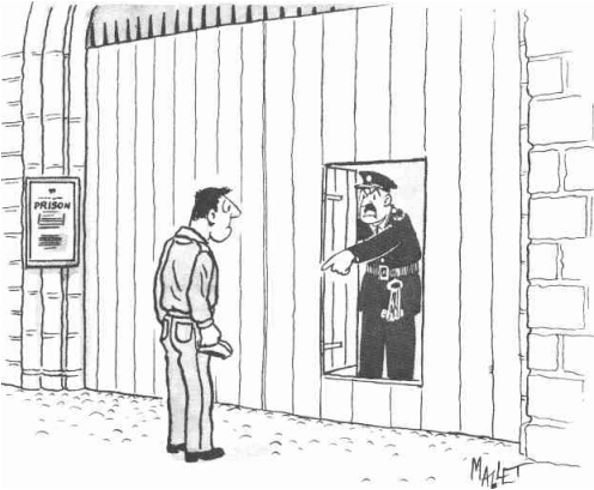

Grammar


Tenses


Present

Present Simple

Present Continuous

Present Perfect

Present Perfect Continuous


Past

Past Simple

Past Continuous

Past Perfect

Past Perfect Continuous


Future

Future Simple

Future Continuous

Future Perfect

Future Perfect Continuous


Parts Of Speech


Nouns

Countable and uncountable nouns

Verbal nouns

Singular and Plural nouns

Proper nouns

Nouns gender

Nouns definition

Concrete nouns

Abstract nouns

Common nouns

Collective nouns

Definition Of Nouns

Animate and Inanimate nouns

Nouns


Verbs

Stative and dynamic verbs

Finite and nonfinite verbs

To be verbs

Transitive and intransitive verbs

Auxiliary verbs

Modal verbs

Regular and irregular verbs

Action verbs

Verbs


Adverbs

Relative adverbs

Interrogative adverbs

Adverbs of time

Adverbs of place

Adverbs of reason

Adverbs of quantity

Adverbs of manner

Adverbs of frequency

Adverbs of affirmation

Adverbs


Adjectives

Quantitative adjective

Proper adjective

Possessive adjective

Numeral adjective

Interrogative adjective

Distributive adjective

Descriptive adjective

Demonstrative adjective


Pronouns

Subject pronoun

Relative pronoun

Reflexive pronoun

Reciprocal pronoun

Possessive pronoun

Personal pronoun

Interrogative pronoun

Indefinite pronoun

Emphatic pronoun

Distributive pronoun

Demonstrative pronoun

Pronouns


Pre Position


Preposition by function

Time preposition

Reason preposition

Possession preposition

Place preposition

Phrases preposition

Origin preposition

Measure preposition

Direction preposition

Contrast preposition

Agent preposition


Preposition by construction

Simple preposition

Phrase preposition

Double preposition

Compound preposition

prepositions


Conjunctions

Subordinating conjunction

Correlative conjunction

Coordinating conjunction

Conjunctive adverbs

conjunctions


Interjections

Express calling interjection

Phrases

Sentences


Grammar Rules

Passive and Active

Preference

Requests and offers

wishes

Be used to

Some and any

Could have done

Describing people

Giving advices

Possession

Comparative and superlative

Giving Reason

Making Suggestions

Apologizing

Forming questions

Since and for

Directions

Obligation

Adverbials

invitation

Articles

Imaginary condition

Zero conditional

First conditional

Second conditional

Third conditional

Reported speech

Demonstratives

Determiners

Direct and Indirect speech


Linguistics

Phonetics

Phonology

Linguistics fields

Syntax

Morphology

Semantics

pragmatics

History

Writing

Grammar

Phonetics and Phonology

Semiotics


Reading Comprehension

Elementary

Intermediate

Advanced


Teaching Methods

Teaching Strategies

Assessment
Free Prisoner
المؤلف:
L.A Hill
المصدر:
Intermediate Steps To Understanding
الجزء والصفحة:
60-1
9/11/2022
2075

There is a prison in Iceland which allows its prisoners to go out without any guards to work every day. They work on the farms near the prison during the day, and come back to have their evening meal and to sleep every evening. Before they are allowed to go out like this, they have to promise to come back every evening. If they do not promise this, they are not let out.
One night one of the prisoners was invited to have a meal and a drink with the family of the farmer he was working for, so he came back to the prison very late. He had to knock at the gate several times before the guard came to let him in.
The guard did not like being disturbed at this time, so he said to the prisoner angrily, 'If you come back so late again, I won't let you in.'
A Which of these sentences are true (T) and which are false (F)? Write Tor F.
- The guards in the prison in Iceland were on the farms with the prisoners during the day.
- The prisoners had to have their evening meal on the farms.
- They spent the night in the prison.
- One prisoner had his meal on alarm one evening.
- The guard did not like opening the gate late at night because he was afraid.
- He did not let the prisoner in.
B Answer these questions:
- In what way is the prison in this story different from most others?
- What work do the prisoners do?
- What do they have to do in order to be allowed to work outside?
- What happens if they do not do this?
- Why was one prisoner very late one night?
- What did he have to do to get into the prison again?
- How did the guard feel about this?
- What did he threaten to do is the prisoner was late again?
C Put it, not or so in each empty place, but only if one of these is needed:
- Did all the prisoners promise to come back every evening?' 'Yes, I think...’
- "Did they always come back? No, I expect...’
- Did the prisoners work really hard on the farms?' I wonder....’
- Did the farmer who invited the prisoner like him?' 'Yes, I suppose….’
- Do you think the prisoner who was late ever came late again? I doubt....’
- Did the guards ever lock a prisoner out?' No, I hope ....’
- I think that was a nice prison. I agree...’
- We have prisons like that in Britain too.' 'I don't believe….’
 الاكثر قراءة في Intermediate
الاكثر قراءة في Intermediate
 اخر الاخبار
اخر الاخبار
اخبار العتبة العباسية المقدسة

الآخبار الصحية















 قسم الشؤون الفكرية يصدر كتاباً يوثق تاريخ السدانة في العتبة العباسية المقدسة
قسم الشؤون الفكرية يصدر كتاباً يوثق تاريخ السدانة في العتبة العباسية المقدسة "المهمة".. إصدار قصصي يوثّق القصص الفائزة في مسابقة فتوى الدفاع المقدسة للقصة القصيرة
"المهمة".. إصدار قصصي يوثّق القصص الفائزة في مسابقة فتوى الدفاع المقدسة للقصة القصيرة (نوافذ).. إصدار أدبي يوثق القصص الفائزة في مسابقة الإمام العسكري (عليه السلام)
(نوافذ).. إصدار أدبي يوثق القصص الفائزة في مسابقة الإمام العسكري (عليه السلام)


















